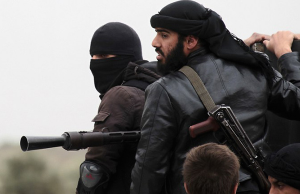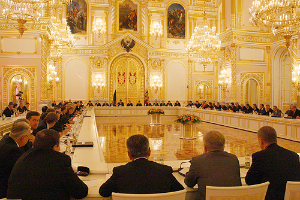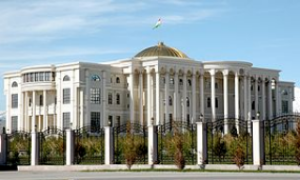Russia Fears Jihadists Returning Home
By Dmitry Shlapentokh (05/07/2014 issue of the CACI Analyst)
The Kremlin is facing a new set of terrorism-related challenges in the Middle East and Central Asia and has engaged in several moves to counter these threats. Russia’s policy on Syria can partly be seen in this light – the risk of terrorists acquiring either chemical weapons or the skills to use them could have grave consequences for Russia itself. Accordingly, while continuing to support the Syrian regime, Moscow pressured its Syrian allies to comply in destroying their chemical weapons. Moscow is also increasingly concerned over the aftermath of NATO’s withdrawal from Afghanistan, and over the prospect of both Syria and Afghanistan transforming into training camps for terrorists who could then return to Russia.

Russia's Dilemma in South Ossetia
By Valeriy Dzutsev (04/23/2014 issue of the CACI Analyst)
After a long period of political bargaining between Moscow and the Georgian breakaway territory of South Ossetia, the latter managed to obtain unexpected concessions from Russia. The Russian government’s desire to implement certain policies in the region is successfully obstructed by local politicians. Russian experts are divided on whether Russia should take similar steps in the South Caucasus as in Ukraine. While some argue in favor of quickly moving on with other territorial gains including South Ossetia, others call for a more cautious approach. The Russian government may keep the problem of Georgian breakaway territories as another foreign policy instrument to influence its southern neighbor in case it proceeds to join NATO.

CACI Analyst, April 2, 2014
Ukraine Crisis and Putin's Post-CIS Integration Plans
By Richard Weitz (04/02/2014 issue of the CACI Analyst)
Although Russia continues to participate in the Commonwealth of Independent States (CIS), the reluctance of Ukraine and other members to support deep integration within that framework has led the Russian government under Vladimir Putin to focus Moscow’s integration efforts on other institutions. Now Russia’s military moves against Crimea have presented both opportunities and challenges for Putin’s post-CIS integration agenda.
Tajikistan's Government Anxious over Crimea
By Oleg Salimov (04/02/2014 issue of the CACI Analyst)
The events in Ukraine and Crimea are a wake-up call for most of Central Asia’s leaders. Although far away from Ukraine, Tajikistan is in the same zone of political and economic influence imposed by Russia. This implies that Tajikistan must consider the possibility of being subjected to a sequence of events similar to those in Crimea. The lack of a comprehensive reaction from Tajikistan’s president, usually supportive of President Putin, to the situation in Crimea can be interpreted as fear that Tajikistan could potentially be absorbed by Russia in part or as a whole. An evaluation of Tajikistan’s political and socioeconomic situation can provide clues to whether Tajikistan is susceptible to a Crimea scenario. 









 Book S. Frederick Starr and Svante E. Cornell,
Book S. Frederick Starr and Svante E. Cornell,